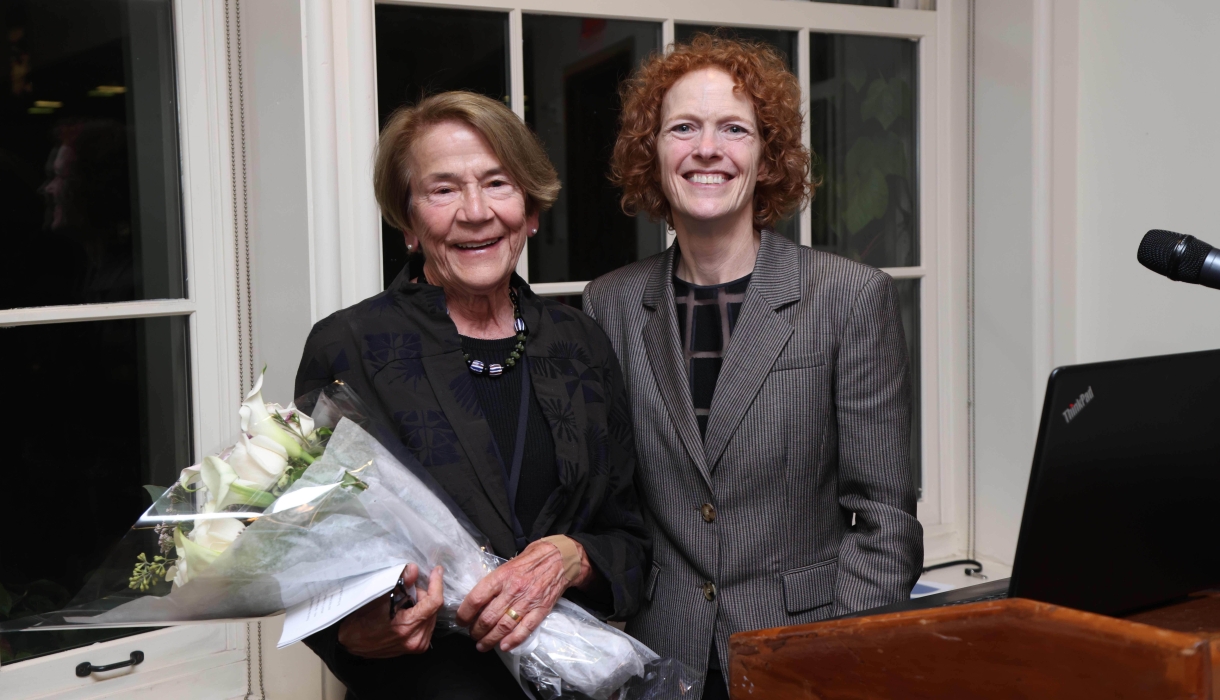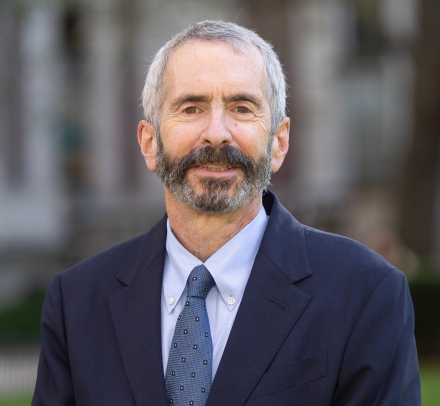Elizabeth Scott Honored at American Law Institute Meeting on Children and the Law
Colleagues toasted the Harold R. Medina Professor Emerita of Law as “a giant in the field” of family law and juvenile justice.

Legal scholars, judges, advocates, and practitioners in family law gathered at Columbia Law School in September to discuss The American Law Institute’s (ALI) Restatement of the Law, Children and the Law and to celebrate its lead reporter, Elizabeth Scott, Harold R. Medina Professor Emerita of Law.
In her scholarship, Scott pioneered the inclusion of a developmental framework for juvenile justice. Working with the psychologist Laurence Steinberg, she used science to show that adolescents, as compared to adults, are more prone to make rash decisions, behave recklessly, and submit to peer pressure. This approach, first outlined in 2003, influenced the U.S. Supreme Court and was cited in the 2005 landmark decision Roper v. Simmons, where the court found the death penalty unconstitutional for crimes committed by minors. The work also led to changes in state-level juvenile justice systems around the country.
“I cannot overstate the impact of Scott’s work,” said Professor of Law Clare Huntington ’96, an associate reporter on the ALI restatement. “Everyone—and I mean everyone—now thinks about and talks about the developmental approach. It is the foundation for public policy.”
Huntington also noted Scott’s contributions to family law. Scott introduced a strategy for resolving difficult child custody disputes by modeling custody arrangements on how the family handled caregiving before the parents divorced rather than using a complex calculus presumed to determine the best interests of the child.
Scott “is a giant in the field” of family law and youth justice, said Clinical Professor of Law Josh Gupta-Kagan, who moderated a panel discussion at the conference on the family regulation system. “Her research informed a line of Supreme Court cases which continue to catalyze improvements to our long-troubled juvenile justice legal system. And that’s just one part of her accomplishments over a long career.”
Besides panels, the daylong event included a celebratory dinner in honor of Scott, whose teaching career at Columbia Law School spanned 17 years and included serving as vice dean for curriculum, a role in which she addressed the challenges of remote teaching during the COVID-19 pandemic.
Scott, who is known as Buffie, “was there at every turn—an indefatigable member of the team who played a vital role in getting us through,” said Gillian Lester, Dean and Lucy G. Moses Professor of Law, in a toast at the dinner. “Buffie was a steady and constant leader to the faculty and indispensable help to me—a problem solver, a strategist, and an empathic colleague of the first degree.”
From Doubt to Doctrine
The restatement project, begun in 2015, had to overcome some “skepticism,” to dispel the idea that “children under the law” was merely “a bunch of unrelated doctrines connected only by a common focus on children,” said Scott. “Since restatements are supposed to bring clarity and coherence to a field of law, to some people, it didn’t seem like a very promising project.”
But nearly nine years later, “Our work has clarified that it is a coherent and an integrated area of law,” she said. “In the 21st century, the regulation of children across the legal landscape is generally shaped by a core principle and goal, and that is to promote the well-being of children.”
Scott added that “lawmakers increasingly recognize and emphasize the social-welfare benefits of law that promotes child well-being.” In addition, “courts are beginning to recognize the embedded racial and class bias in the law’s treatment of children and to take small steps to mitigate these pernicious influences.”
The restatement will be presented for approval at the ALI annual meeting in May 2024.
